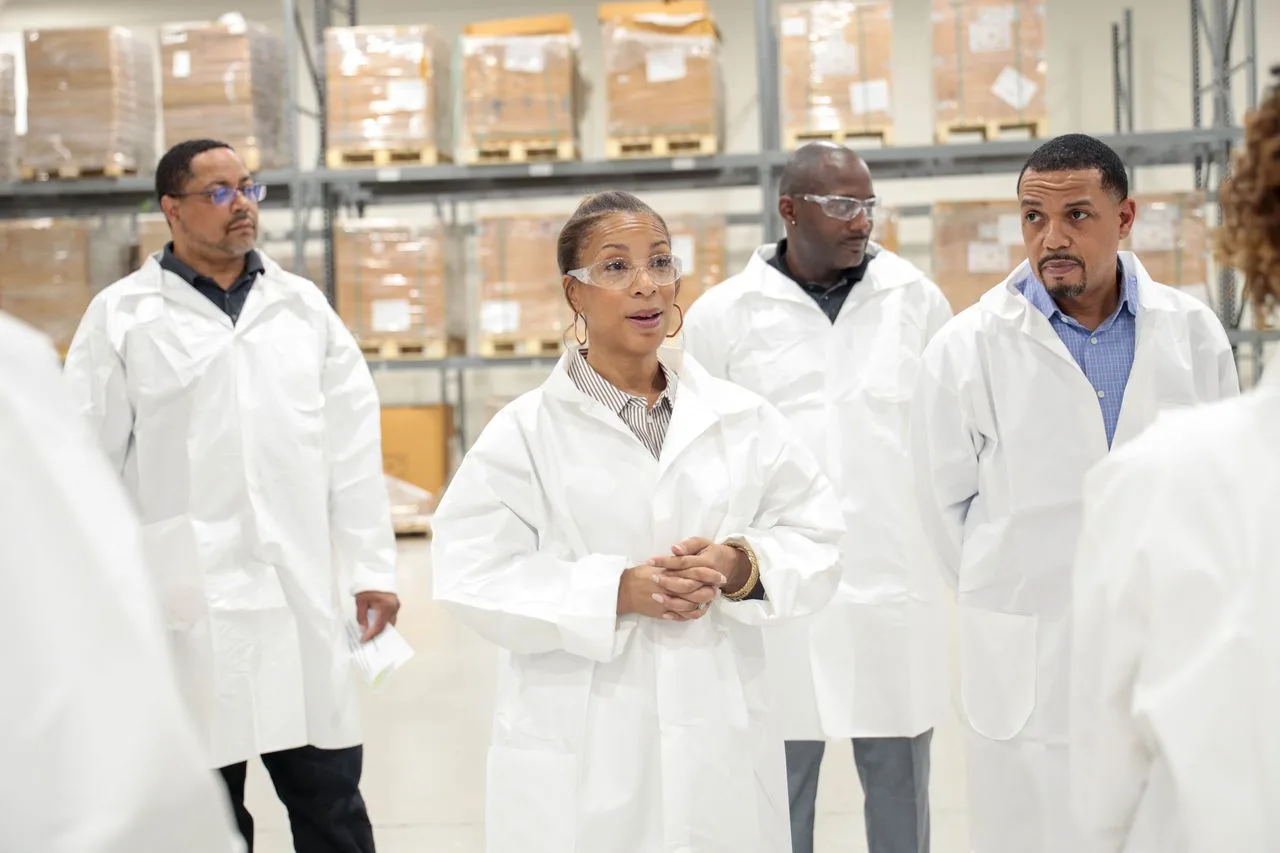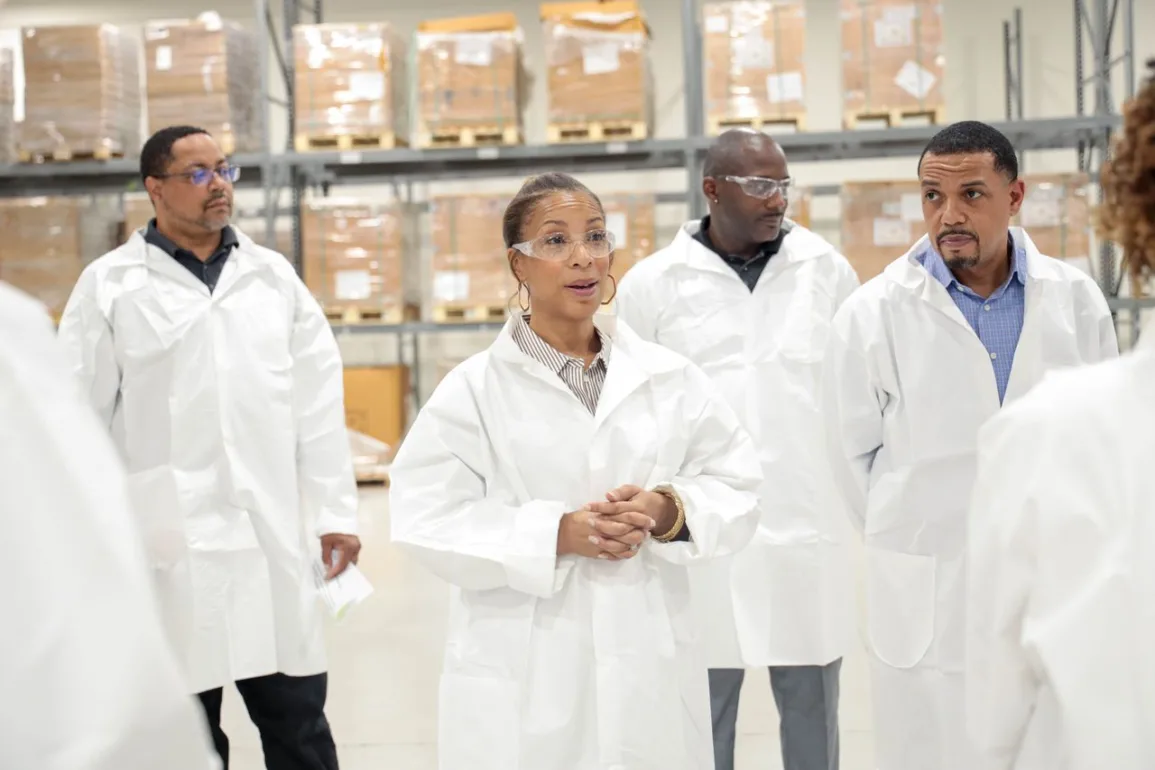
On the eastside of Detroit sits the Dunamis Charge electric vehicle charger manufacturing plant, the first of its type in the nation to be owned by a Black woman.
CEO and founder Natalie King said the journey to opening the plant last year is like the experience of every woman creating a space in the EV industry.
”You have the later phases of what entrepreneurs experienced as a whole… the late nights, the hard work, people to buy into the vision,” King said. “On top of that, we’re having to kind of jump through hurdles when you’re in industries that have been historically dominated by men.”
King is one of a handful of diverse voices who have emerged as leaders in this rapidly growing EV space.
There’s no comprehensive data available with industry demographics, but Amy Rogghe, executive director of the Michigan Electric Vehicle Alliance, said it has begun to include more women and people of color, although it’s “still more male driven.”
Take Tesla, the nation’s leading electric vehicle manufacturer, for example. The company’s first DEI report from 2020 shows the company’s U.S. workforce was 59% white and 83% male. Last year, the company reported its employees were 33% white and 77% male employees.
Mostly white men, however, make up the executive and managerial staff, showcasing that it can still be difficult for minorities to reach high-level positions in the industry.
Black workers played a key role in making Michigan a leader in the automotive industry. Throughout the 20th century, more than six million Black Americans traveled from southern states to the Midwest in hopes of finding jobs in the booming automotive industry, during what’s known as The Great Migration.
Now, as the next step in the auto-revolution takes shape, King sees an opportunity for Black Michiganders to take on more authoritative roles rather than line workers.
”We need to be able, as a black and brown community, to make sure that we carve our part of this industry,” King said. “Not just through workforce, although workforce is extremely important, but also through innovation and entrepreneurship.”
After transitioning from her job as a lawyer, King co-founded a solar-integration company in 2007 before forming Dunamis Clean Energy Partners, LLC., a technology, manufacturing and engineering firm, in 2012. The planning for Dunamis Charge began in 2019.
For King, with over a decade of experience working in the clean energy sector, it is important diverse voices are involved when in policy affecting the industry and business procurement opportunities.
She sees women of color, in particular, have difficulty accessing capital investments that can help launch or sustain their businesses. They’re “considered to be a risk” by banks, she said.
”There are biases that exist in this industry, obviously,” King said. “Everyone that I know that has experienced it, it’s nothing that I believe to be pie in the sky or just conjecture. It’s real.”
Lt. Gov. Garlin Gilchrist told MLive these issues are why the state launched the Michigan Economic Opportunity Fund in March. The fund provides financial assistance to socially and economically disadvantaged individuals who don’t qualify for loans through traditional financial institutions.
“We wanted to build this gap to the capital stack, and so I think it’s going to open a lot of opportunity for people that are interested,” Gilchrist said.
Electric vehicles are “critical to the present and the future of Michigan’s economy,” he said, adding that the state wants to ensure “people in Michigan see a place for themselves in it… that includes that entrepreneurs of color actually have a pathway.”
Creating a pathway for Black businesses to thrive is why King helped co-found a coalition of named Blacks in Electric Vehicle Infrastructure, or BEVI. The group, made up of predominately Michigan-based businesses, came together to create a resource that provides exposure for minority-owned EV companies.
That’s how they plan to create equitable inclusion and representation in the industry, King said.
“Many times, you have supplier diversity initiatives or DEI initiatives for specific industries, but EV is so new, and it’s especially new to the entrepreneurs that are in this space,” she said. “It’s only over a handful of companies that are really making specific and established strides in this industry and none of them look like ours.”
Rogghe believes space still needs to be made for Native American and low-income individuals in the EV change, as well. They are often underrepresented in climate discussions, and yet are impacted the most.
Melody Harvey, who works alongside Rogghe as communications director of the Michigan Electric Vehicle Alliance, said it would also help introduce additional women and people of color by simply bringing more awareness of EVs and “the change they make positively to our communities” among everyday people.
She said she would like to see the Woodward Dream Cruise, an annual event for car enthusiasts, feature electric cars next year.
In the past, too, the organization has traveled to different local communities for events to spread the word about EVs are and the impact they can have on the climate. Partner organizations sometimes question the choice, Rogghe said.
”People are like, ‘Well, why are you going there? Nobody in that neighborhood can afford it’,” she said. “And I’m like, ‘Yeah, that’s the exact reason I want to go’.”
Read more from MLive:
Gotion reaches agreement with Michigan township on $2.4B battery plant
GOP presidential hopefuls talk China, EVs as Michigan candidate fights from sideline
Expect delays when crossing Mackinac Bridge this fall



